Oskar KokoschkaEnfant terrible in Vienna
From to
The Musée d'Art Moderne de Paris is presenting the first Paris retrospective devoted to Austrian artist Oskar Kokoschka (1886–1980). Retracing Kokoschka's seven decades of image-making, the exhibition highlights the artist's originality as we accompany him through Europe's 20th century.
Painter, writer, playwright and poet, Kokoschka stands for his committed role in the artistic and intellectual upheavals of early 20th-century Vienna. Combining a drive to convey the intensity of the moods of his time with a very real talent for provocation, from 1908 onwards he became the enfant terrible for critical circles in Vienna. Meanwhile, with the support of Gustav Klimt and Adolf Loos, he inspired a new generation of artists, among them Egon Schiele. As a portraitist of Viennese society, he brought unrivalled skill to laying bare his models' innermost being.
Shaken by his breakup with the composer Alma Mahler after a tumultuous affair between 1912 and 1914, Kokoschka joined the army when the First World War broke out, and was seriously wounded twice. He went on to teach at the art school in Dresden while seeking new forms of painterly expression as counterpoints to such other contemporary movements as Expressionism, the New Objectivity and obstruction.
A tireless traveller, during the 1920s he made trips to European countries, North Africa and the Middle East. Driven back to Vienna by financial difficulties at the beginning of the 1930s, in 1934 he was forced by the political troubles of the time to leave for Prague. When his works, condemned by the Nazis as "degenerate", were withdrawn from German museums, he braved the forces of fascism with an unrelenting commitment to the defence of freedom. Exile becoming inevitable, he found a refuge in Great Britain in 1938 and joined the international resistance movement.
After the war, he became a leading figure on the European intellectual scene and participated in the cultural reconstruction of a devastated, divided continent. He explored Greek tragedies and mythological stories in search of the sources of social ferment. Distancing himself from Germanic culture and language, he settled in Villeneuve, in French-speaking Switzerland, in 1951. The works of his last years show an uncompromising pictorial radicalism close to that of his early career. His belief in the subversive power of painting as a vehicle for emancipation and education remained unshakeable until his death.
Oskar Kokoschka: Enfant terrible in Vienna is a unique selection of 150 of the artist's most significant works, brought together with the backing of major European and American collections.
The exhibition will be on show at Guggenheim Bilbao from 17 March to 3 September 2023.
Curators: Dieter Buchhart, Anna Karina Hofbauer and Fanny Schulmann, assisted by Anne Bergeaud and Cédric Huss
Main sponsor






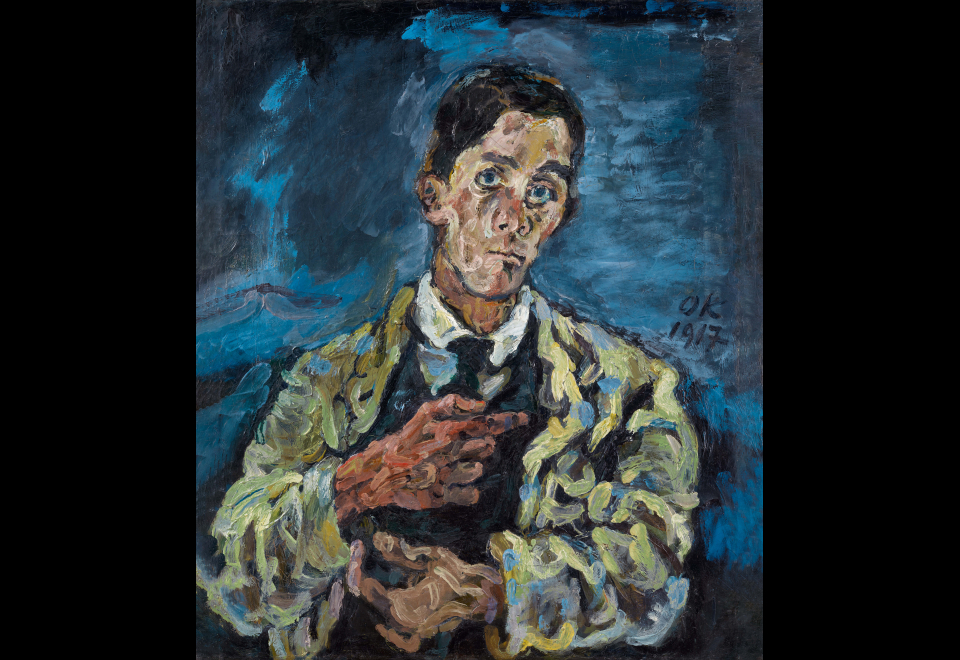
Self-portrait,1917
Oil on canvas
Von der Heydt-Museum, Wuppertal
Photo Patrick Schwarz © Fondation Oskar Kokoschka / Adagp, Paris 2022
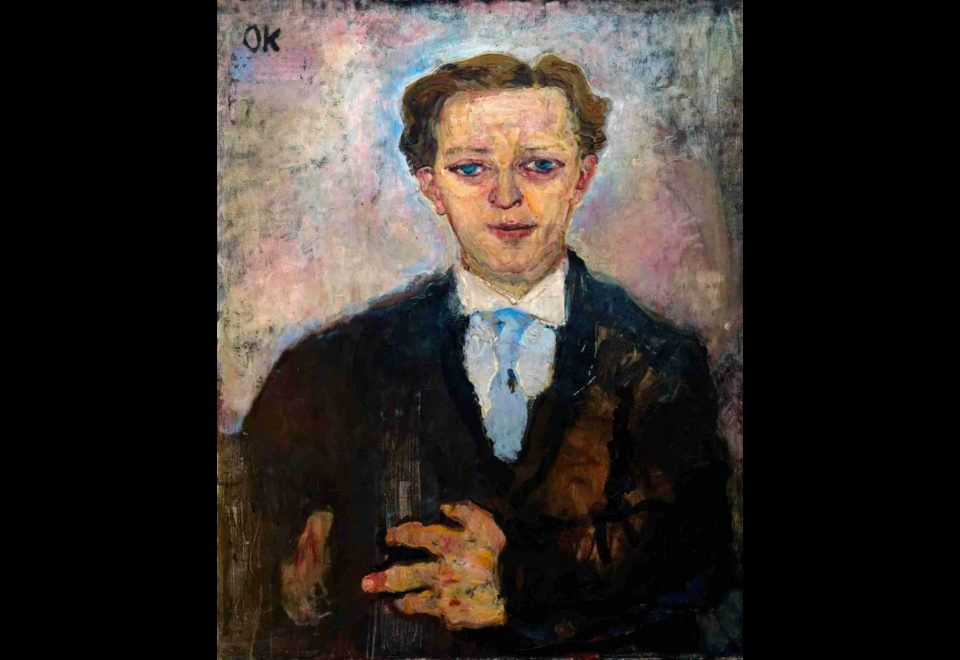
Le joueur de transe (Ernst Reinhold) / Der Trancespieler (Ernst Reinhold),1909
Oil on canvas
Musées royaux des Beaux-Arts de Belgique, Bruxelles
Photo : J. Geleyns © Fondation Oskar Kokoschka / Adagp, Paris 2022
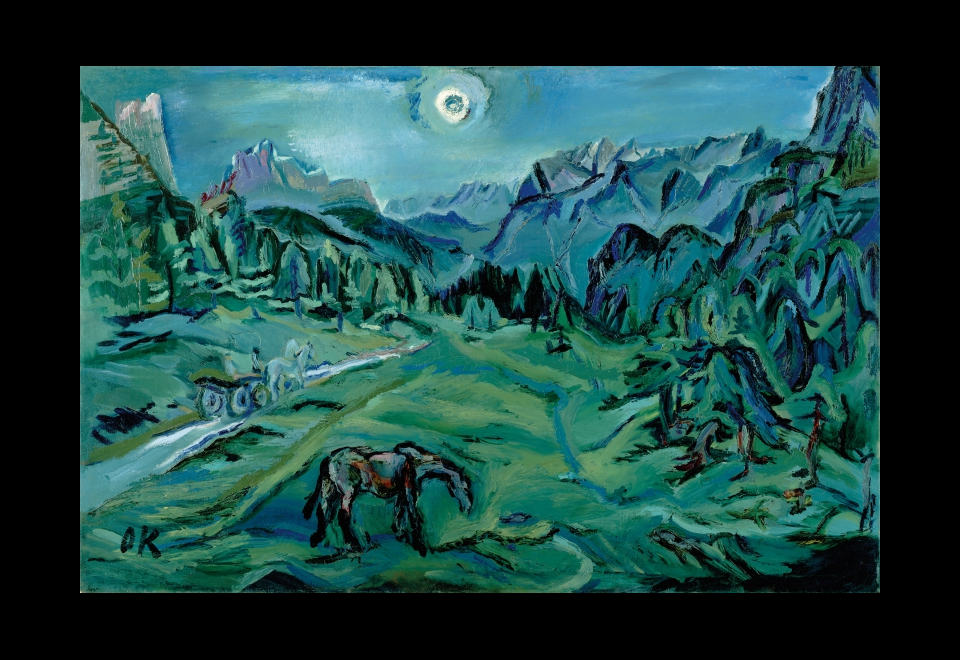
Paysage des Dolomites, Tre Croci / Dolomitenlandschaft, Tre Croci, 1913
Oil on canvas
Leopold Museum, Vienna
© Fondation Oskar Kokoschka / Adagp, Paris 2022
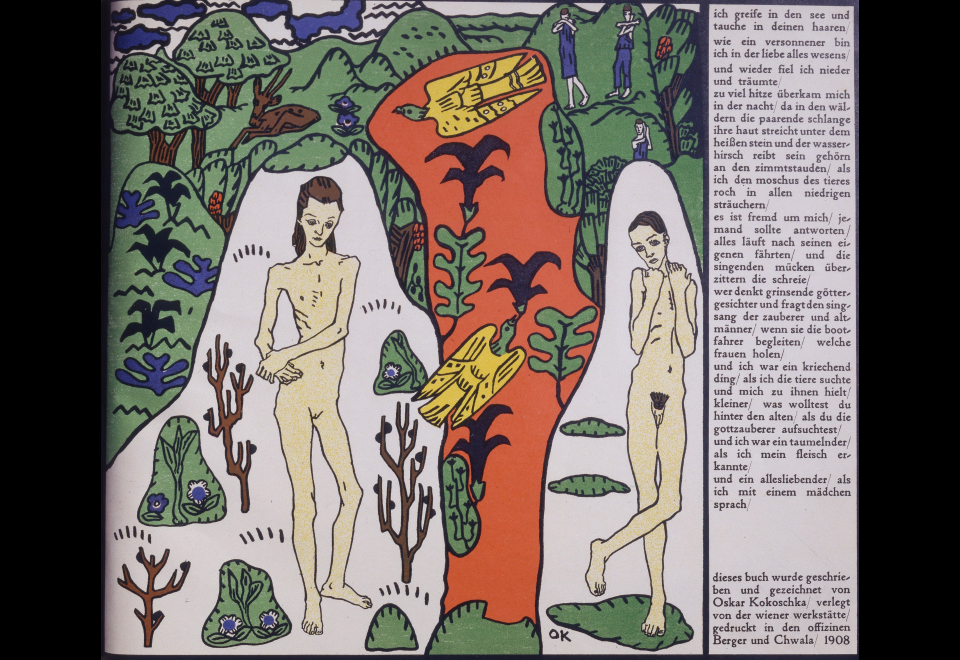
Les Garçons qui rêvent / Die Träumenden Knaben, 1908
Lithographie en couleur sur papier. Édité par la Wiener Werkstätte, les Ateliers viennois
Bibliothèque Nationale de France, Paris
© Neue Galerie New York / Art Resource / Scala, Florence
© Fondation Oskar Kokoschka / Adagp, Paris 2022
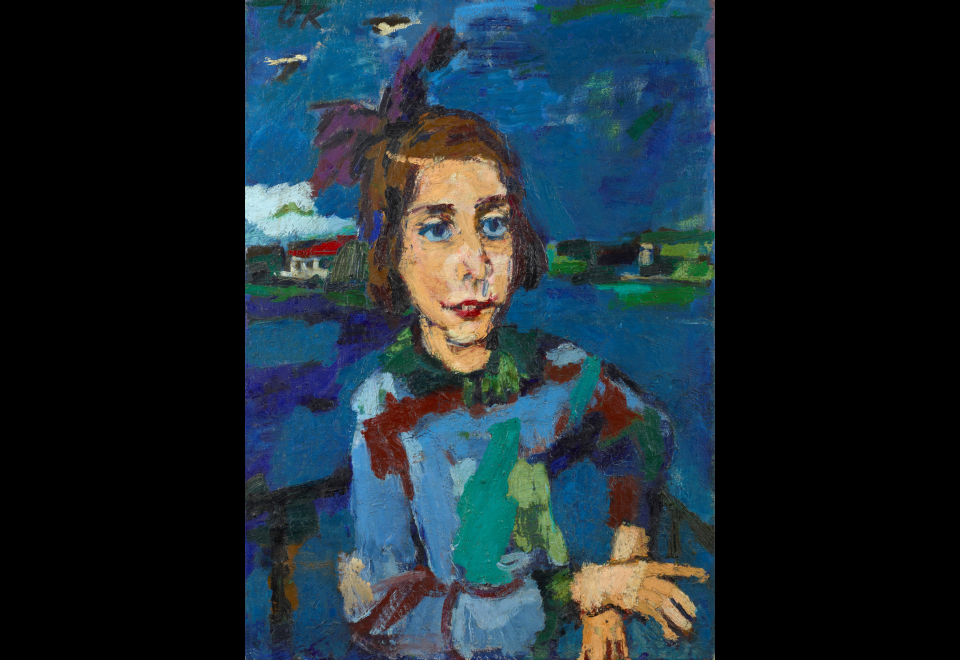
Gitta Wallerstein, 1921
Oil on canvas
Dresde, Albertinum I Galerie Neue Meister, Staatliche Kunstsammlungen Dresden
Acquis en 2014 de la collection Willy Hahn avec l’aide du Ernst von Siemens Kunststiftung et du Kulturstiftung der Länder
Photo © BPK, Berlin, Dist. RMN-Grand Palais / Elke Estel / Hans-Peter Klut. © Fondation Oskar Kokoschka / Adagp, Paris 2022
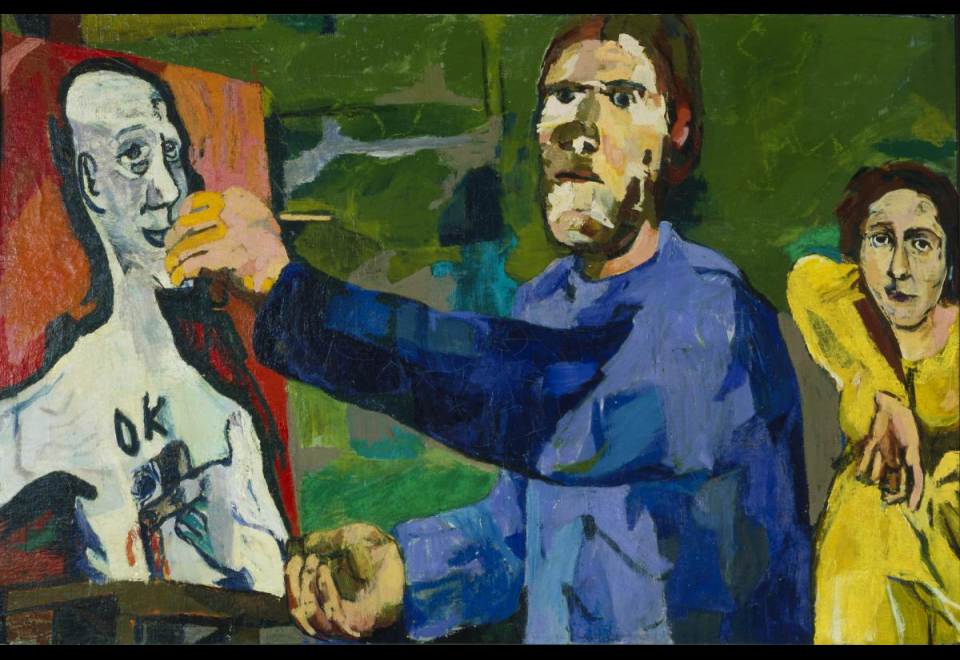
Le Peintre II (Le Peintre et son modèle II) / Der Maler II (Maler und Modell II), 1923
Oil on canvas
Saint Louis Art Museum, Saint-Louis, Bequest of Morton D. May
© Fondation Oskar Kokoschka / Adagp, Paris 2022
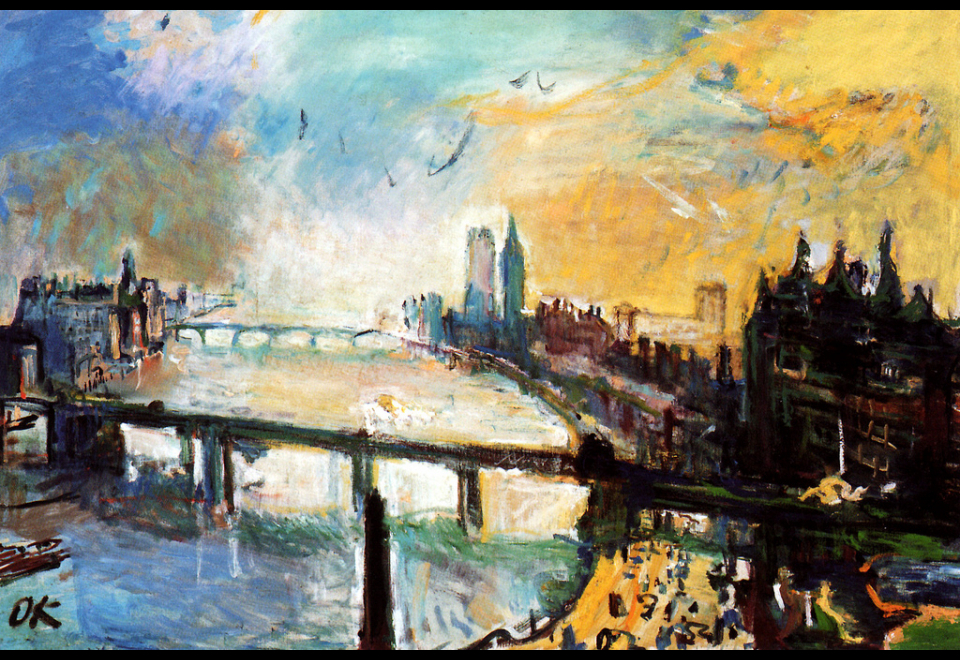
Londres, petit paysage de la Tamise / London, kleine Themse-Landschaft, 1926
Oil on canvas
Albertina Museum, Vienne - The Batliner Collection
© Fondation Oskar Kokoschka / Adagp, Paris 2022
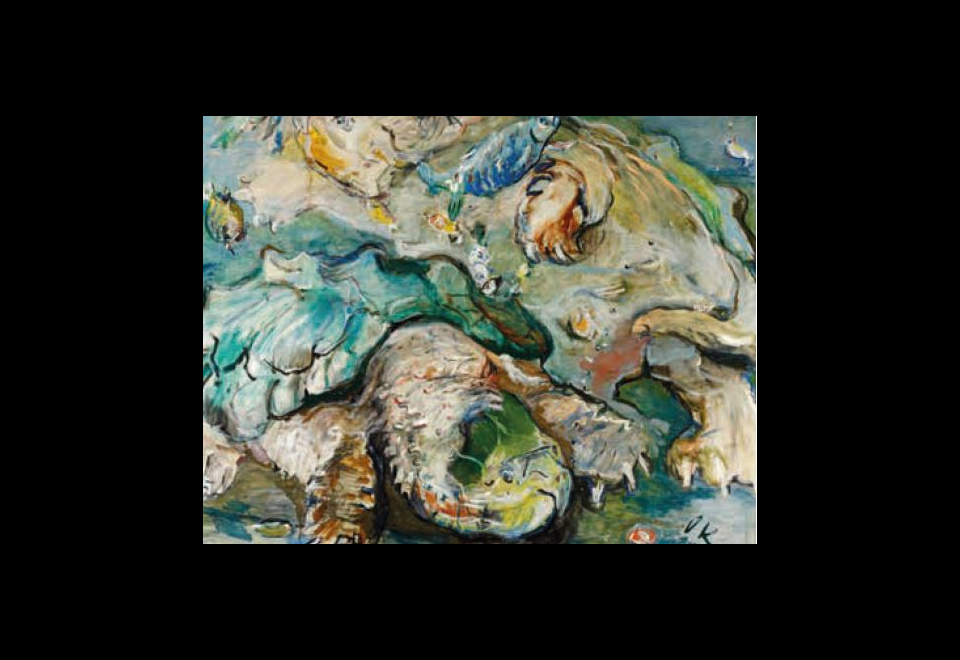
Tortues géantes (tortues alligator) / Riesenschildkröten, 1927
Oil on canvas
Kunstmuseum Den Haag, La Haye
© Fondation Oskar Kokoschka / Adagp, Paris 2022
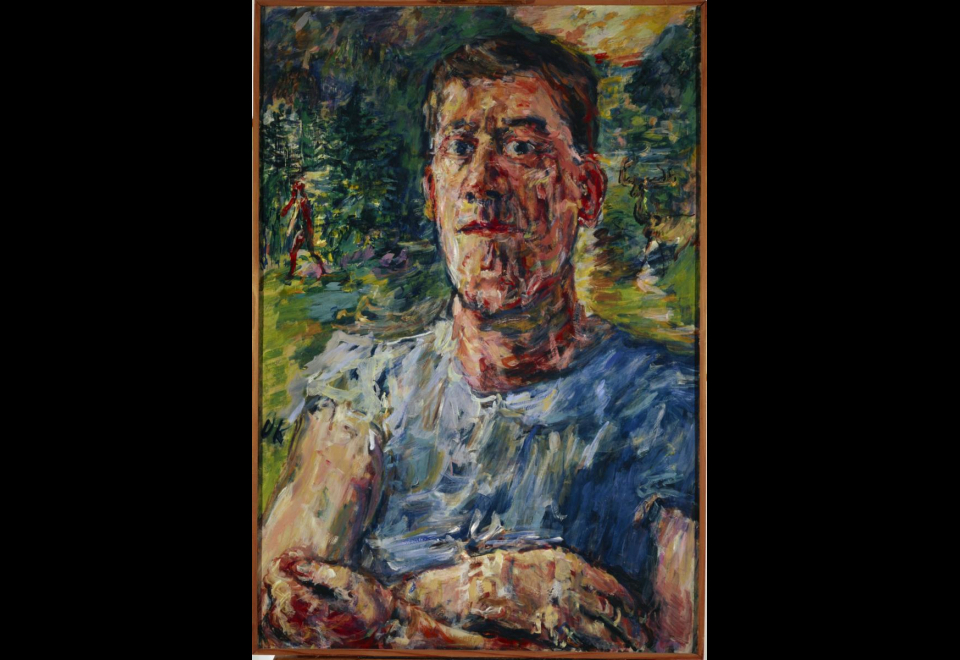
Autoportrait en « artiste dégénéré » / Selbstbildnis eines ‘Entarteten Künstlers’, 1937
Oil on canvas
National Gallery of Scotland, Édimbourg
En prêt d'une collection particulière
© Fondation Oskar Kokoschka / Adagp, Paris 2022
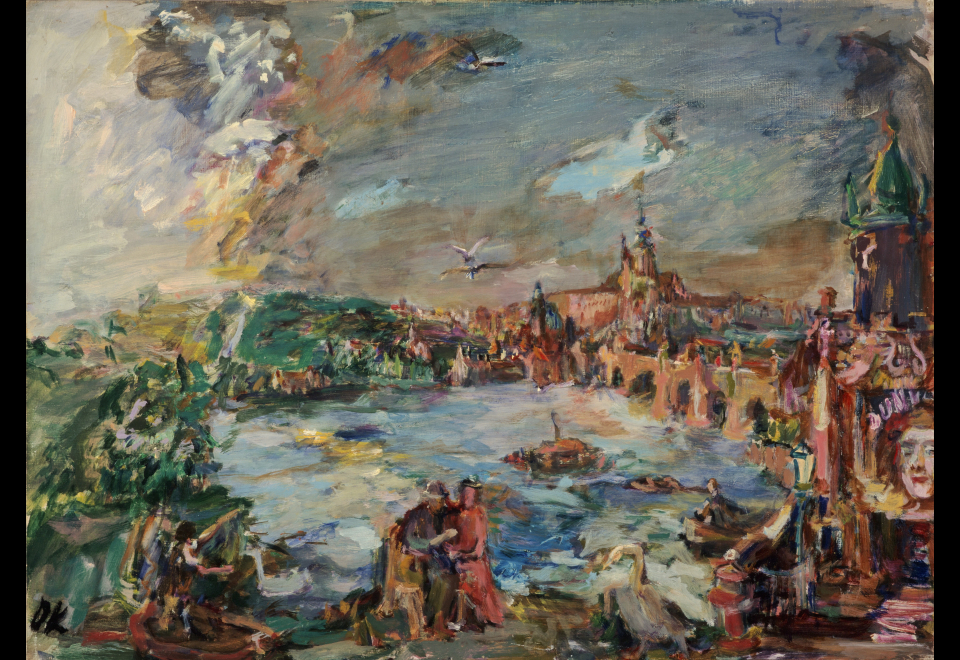
Prague, nostalgie / Prague, Nostalgia, 1938
Oil on canvas
National Gallery of Scotland, Édimbourg
accepté par le gouvernement de Sa Majesté pour droits de succession et alloué à la National Gallery of Scotland, 2000
© Fondation Oskar Kokoschka / Adagp, Paris 2022
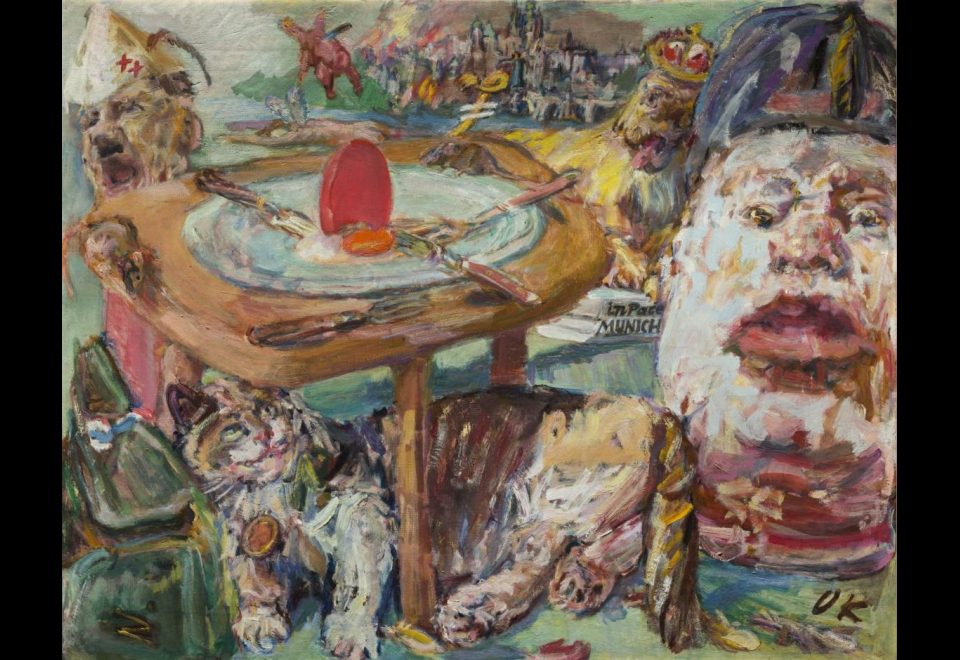
L'Œuf rouge / Das rote Ei, 1940-1941
Oil on canvas
National Gallery, Prague
© Fondation Oskar Kokoschka / Adagp, Paris 2022
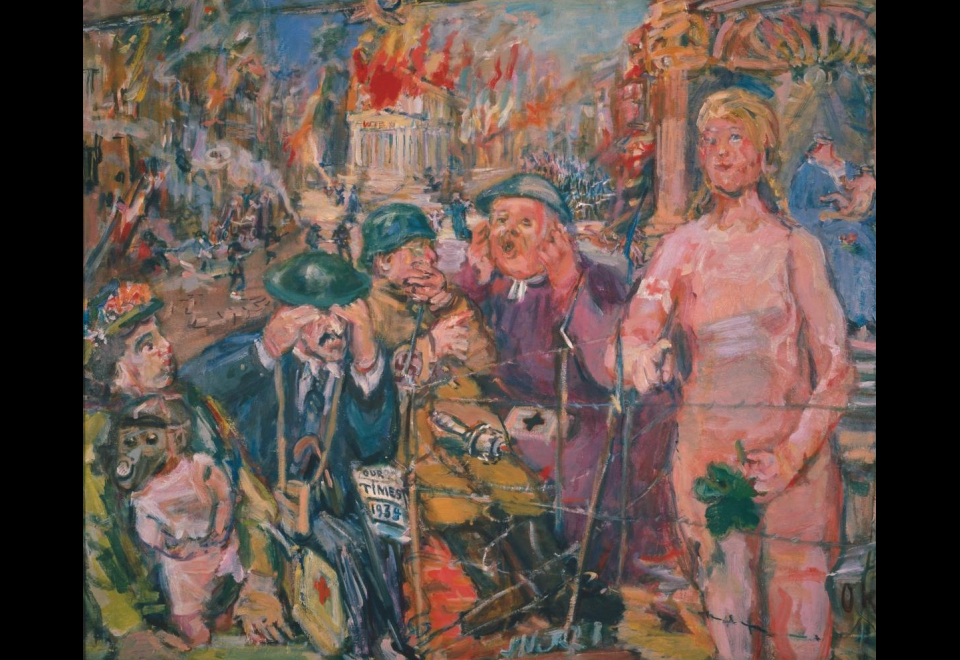
Anschluss – Alice au pays des merveilles / Anschluss – Alice im Wunderland, 1942
Oil on canvas
Wiener Städtische Versicherung AG – Vienna Insurance Group
en prêt permanent au Leopold Museum, Vienne
© Fondation Oskar Kokoschka / Adagp, Paris 2022
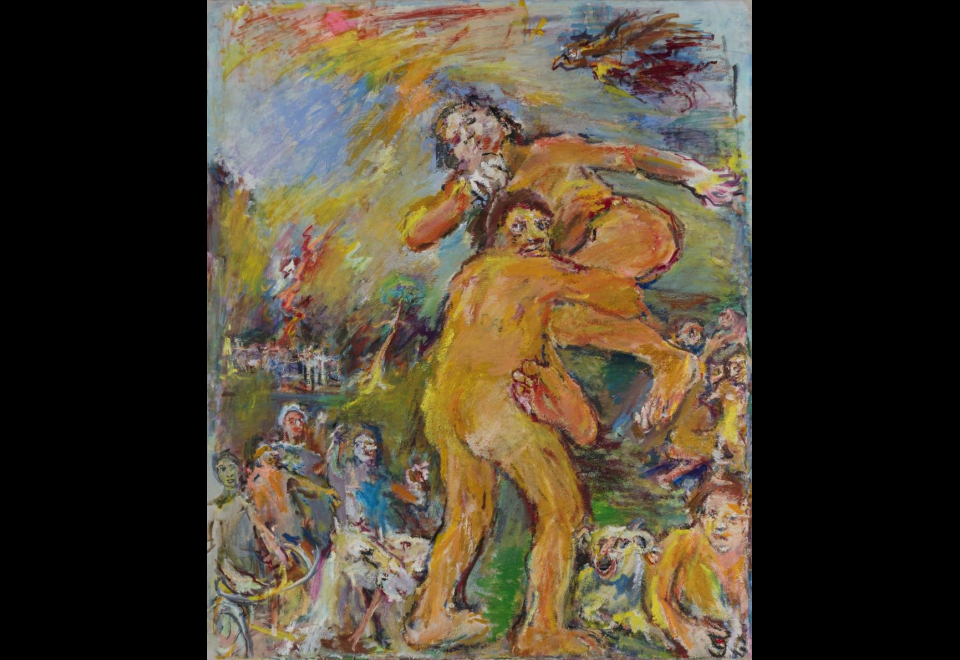
Thésée et Antiope (L’Enlèvement d’Antiope) / Theseus und Antiope (Raub der Antiope), 1958 - 1975
Oil on canvas
Vevey, Fondation Oskar Kokoschka, musée Jenisch
© Fondation Oskar Kokoschka / Adagp, Paris 2022
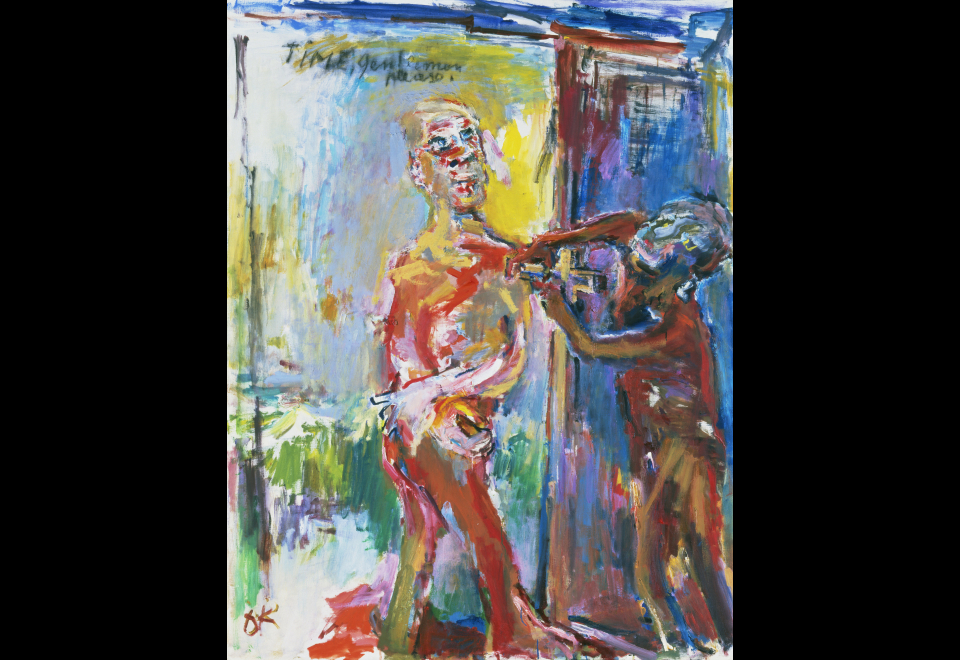
Time, Gentlemen Please, 1971-1972
Oil on canvas
Tate, Londres
© Fondation Oskar Kokoschka / Adagp, Paris 2022
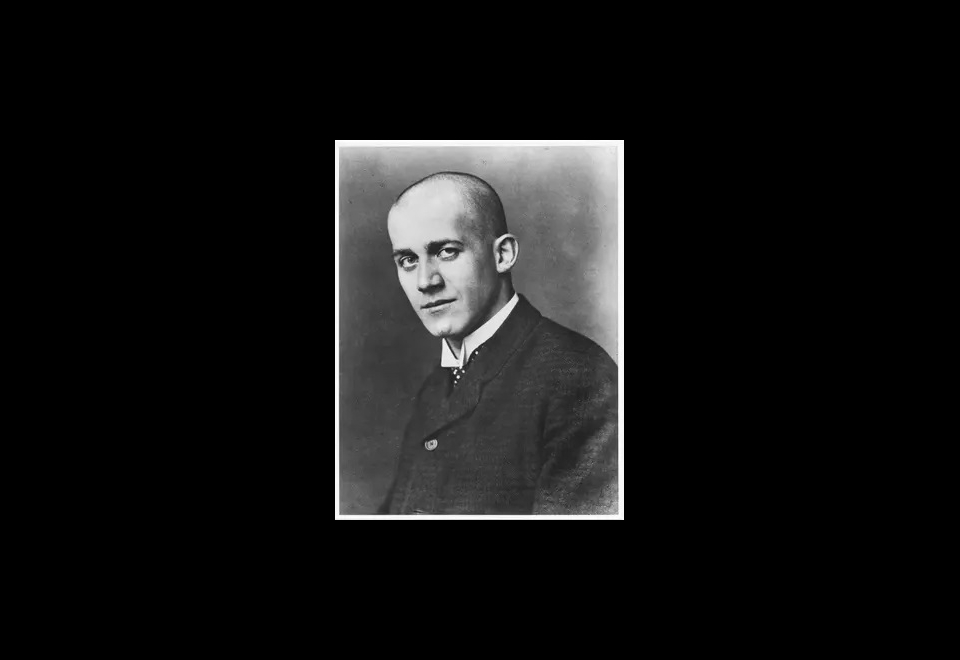
Oskar Kokoschka le crâne rasé, 1909
Tirage argentique monté sur carton
© Oskar Kokoschka Zentrum, Universität für angewandte Kunst Vienne / photo Wenzel Weis

